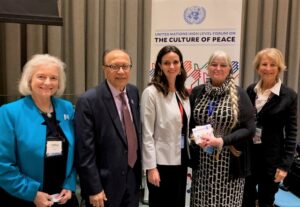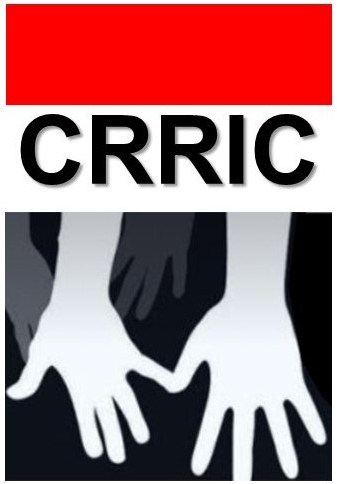[vc_row][vc_column][vc_separator css=”.vc_custom_1592076377183{padding-top: 15px !important;}”][vc_column_text]
The Conflict and Resilience Research Institute Canada (CRRIC) is excited to announce our joint webinar with the Bangabandhu Centre for Bangladesh Studies in Canada (BCBS), Advancing the Culture of Peace: Way Forward taking place on June 18th at 10 AM CDT.
Among the distinguished guests, Ambassador Anwarul K. Chowdhury will be joining us as a keynote speaker to discuss the creation of the culture of peace. This year, Ambassador Chowdhury was the recipient of Soka University’s Inaugural Global Citizen award for his work on peace, women’s rights and equality.
As a pioneer of the concept of the culture of peace, Ambassador Chowdhury has embarked on numerous peacebuilding projects in his lifetime, including his work as the founder of the New York City-based Global Movement for the Culture of Peace (GMCoP). As the former president of the UN security council, Ambassador Chowdhury was instrumental in paving the way for the adoption of the UN Security Council Resolution 1325. Chowdhury’s efforts in promoting Resolution 1325 recognized and encouraged the active participation of women in security and peacebuilding.
What is the culture of peace? How do we create it? In the 20th anniversary commemorative edition of the United Nations Declaration and Programme of Action on a Culture of Peace, the concept is described as a “set of values, attitudes, traditions and modes of behaviour” upholding nine key principles: respect for life; respect for the principles of sovereignty; respect for and promotion of all human rights and fundamental freedoms; a commitment to the peaceful settlement of conflict; a commitment to meeting the developmental and environmental needs of present and future generations; respect for and promotion of the right to development; respect for and promotion of equal rights and opportunities for women and men; respect for and promotion of the right of everyone to freedom of expression; and finally, adherence to the principles of justice, freedom, democracy, tolerance, solidarity, cooperation, pluralism, cultural diversity, dialogue and understanding.
These principles and values have greatly shaped the field of security and peacebuilding, as well as the structures of international governance as a whole. The vision of the culture of peace has contributed an invaluable perspective on how to examine and implement programs surrounding peace, conflict and justice.
Want to learn more about creating a culture of peace? Join us live for our webinar on June 18th at 10 AM CDT. Visit www.bcbscanada.org for event details. The event will also be live-streamed on www.facebook.com/bcbsincanada.
For more information on the culture of peace, check out the resources below.
https://internationaldayofpeace.org/culture-of-peace/
https://en.unesco.org/themes/building-peace-programmes[/vc_column_text][/vc_column][/vc_row]




